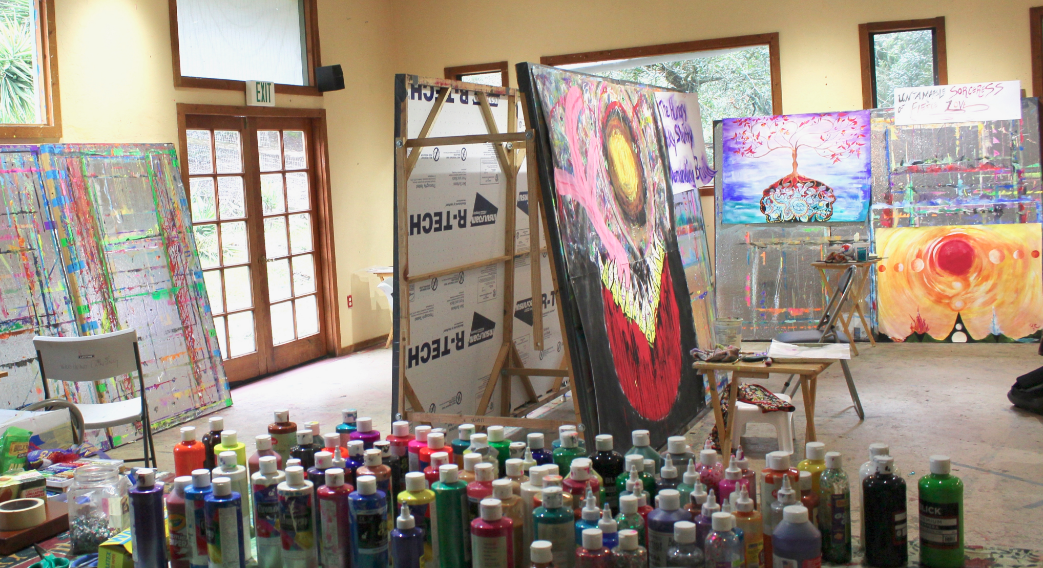Expressive Arts
What is Expressive Arts Therapy?
Expressive Arts Therapy can include visual arts, movement, music, and writing. It supports the symbolic expression of our thoughts and emotions. This approach can help to process unresolved feelings and deepen self-awareness. There are two primary components to Expressive Arts Therapy. First is the creative expression, guided by a prompt or expressive modality. Second is reflection on the creative work, reflection on the process of supportive witnessing, and exploring the inner experiences that emerge related to the creative process.
I offer Expressive Arts Therapy for groups and individuals. Expressive Arts can be a powerful resource for transformation, self-connection, and working through life transitions. My personal background as an artist and mindfulness coach contribute to my approach.
Person-Centered Approach
My expressive arts training is based upon the Person-Centered Approach, which focuses upon personal meaning and process, rather than using art therapy as a diagnostic tool. I have in-depth training and experience in the following areas:
Art Therapy: Visual arts, Mixed-Media
Intuitive Painting
Authentic Movement
Integration of writing and poetry
Jungian Active Imagination Techniques
Who It Can Help
Anyone seeking seeking change or personal growth can benefit from this practice.
No artistic skill or prior experience is needed. Expressive Arts Therapy is often used in conjunction with psychotherapy and integrated into treatment for:
Grief and loss
Life transitions, adjustment challenges
Self-esteem
Body dysmorphia/body image
ADD/ADHD
Traumatic experience
Anxiety and stress
Creative blocks
Inner critic, overcoming perfectionism
Benefits of Expressive Arts Therapy
Exploration of personal meaning and sense of purpose
-Self-expression and communication
-Healthy Coping Skills
-Processing of difficult or painful experience through symbolic expression
Focus and directed attention toward internal processes
Self-understanding and personal insight
Mindfulness and present moment awareness
Empowerment, confidence, self-esteem
Stress reduction, relaxation, release of tension
Enhanced creativity, imagination, capacity to shift perspective




